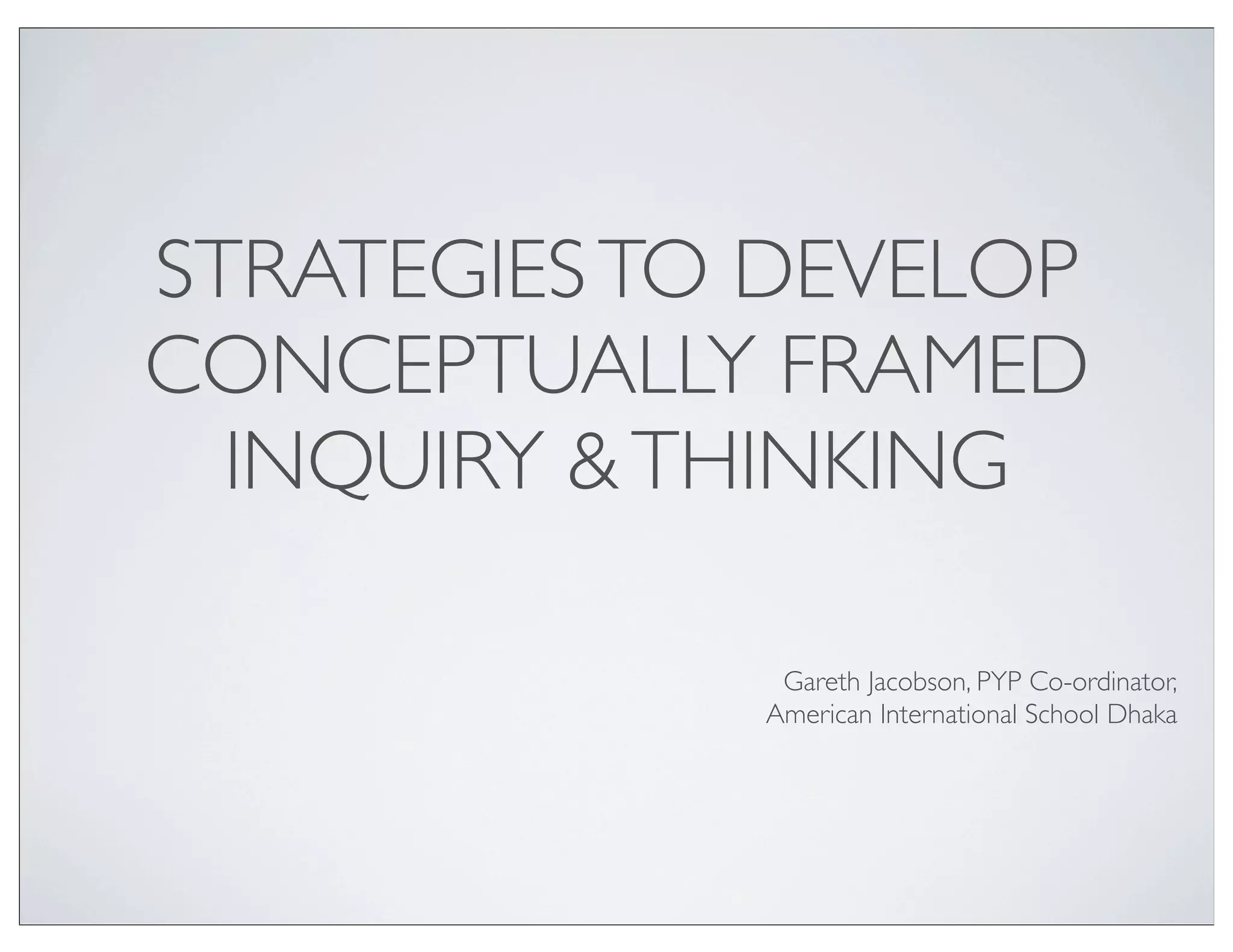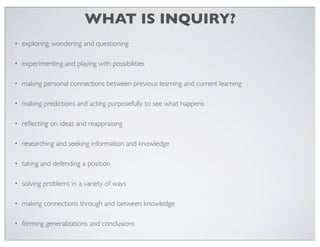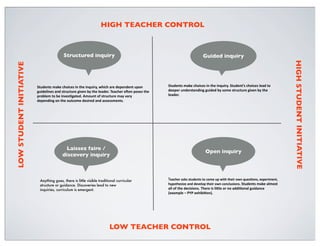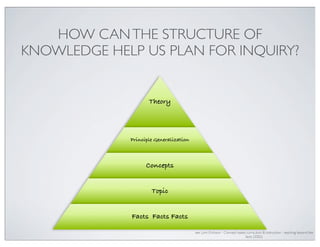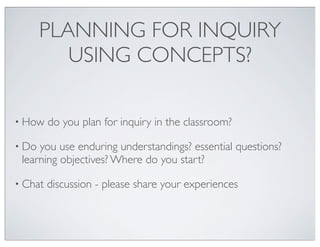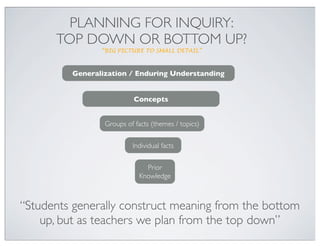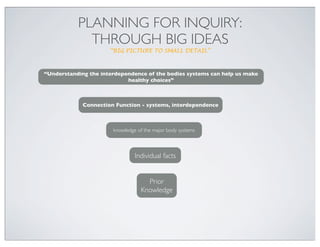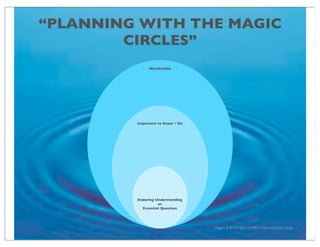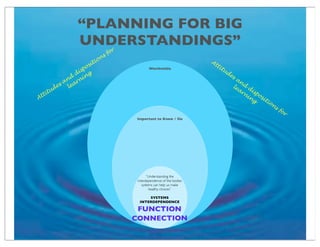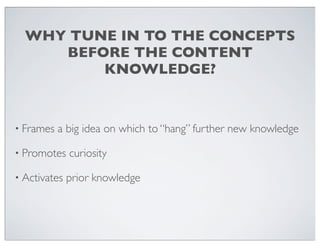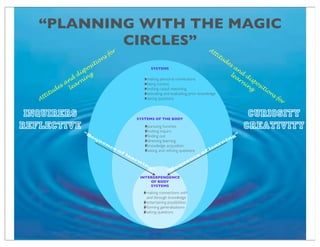The document discusses strategies for developing inquiry-based learning in the classroom, highlighting various types of inquiry including structured, guided, and open inquiry. It emphasizes the importance of framing inquiry around big ideas, enduring understandings, and essential questions to promote student curiosity and deeper understanding. Additionally, it suggests that planning for inquiry should connect prior knowledge with new concepts to foster reflective thinking and personal connections.
